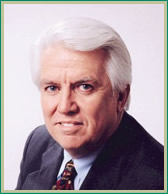
Do As I Do
|
 |
|
| Dr. Paul D. Houston Founding Partner |
When I was young, my parents used to remind me that talk is cheap—otherwise there wouldn’t be so much of it. My father was a Methodist minister, so most of his days were spent talking to people about how they should behave. That is a very dangerous job; while it is easy to talk a good game, playing it is something else entirely. Your actions focus a spotlight on the validity of your words. Fortunately, my father was not just a Christian in word—he was one in deed. Every day he lived what he preached about on Sunday.
I always wondered, with that great example to guide me, why it took me so long to understand that leaders really have to walk their talk. I grew up a talker also and had to tell others what they should do and how they should do it. When Steve and I started discussing “Walking Your Talk,” it reminded me of my father and how really hard it is to walk your talk. The essence of integrity is being integrated, and at the heart of that integration is aligning what you say with what you do. It is like the story of the child who told his parent, “I can’t hear what you are saying because your actions are so loud.” What we do drowns out what we say.
The world is full of leaders who disappoint when they fail to live up to their words. Now there are two ways to avoid that disappointment. You can shade what you do to match what you say. You can reduce expectations and lower possibility by saying little and doing less. Or you can raise your game to match your highest possibility. President Obama is currently going through a crisis of confidence with many who feel that he has failed to match the soaring rhetoric and promise of his campaign. He raised expectations to a point that almost anything that happened later was going to be a disappointment. Now, he would remind us that his slogan wasn’t “Yes, I Can,” it was “Yes, WE Can.” He was calling on all of us to do more and do better. Our disappointment exists because we want our leaders to do it for us. That is one of the pitfalls of being a leader. Real leaders have to strive to lead in such a way that people feel they did it themselves. That is dangerous for the leader, who will never get the credit, but it paves the way toward empowerment.
Politics and life are both made up of compromise. There is so much you want to do and so much that you hope for, but things get in the way. The key is to maintain your sense of purpose and your moral compass when you are faced with these compromises. A few years ago I was diagnosed with glaucoma—a disease of the eye that comes with a buildup of fluid pressure within the eye that gradually damages the optic nerve. Glaucoma is an insidious disease because it happens gradually over time; there is no pain or obvious signs that it exists. If left untreated, sight gradually narrows from the periphery so that tunnel vision and eventual blindness ensue. As I learned about the disease, I realized it was a great metaphor for leaders. The pressure builds up on us, we make our little day-to-day compromises, and before we know it we have lost our vision. The solution to glaucoma is to take medicine that will arrest the decline. The solution for leaders is to step back periodically and think about what we are doing. Have we lost our way? Have we taken a path we shouldn’t have—the path of least resistance?
That is really the key to walking your talk. Because we talk so much in the course of a day or a lifetime, it is pretty easy to lose track of who we are and what we stand for. Only by stopping and reassessing can we modify our course and align our actions to our words.
It is pretty easy to tell others how they should be and what they should be doing, whether it is the President or one of our loved ones. We have lots of advice for others. We can guide them so clearly toward the path they should be following. Just do as I say. It is a wholly different task to guide ourselves to staying on the right path—the path that tells others to do as I do. Setting that bright example for others comes from being able to set that example for ourselves. Most of us know pretty clearly what we should be doing. It is just a whole lot harder to do it. Moral courage manifests when actions align with words. That is why, over the years, the admiration I have for my father has grown. He was truly a righteous man—he walked in the way he taught. He exemplified what he said on Sunday mornings.
Was he a perfect man? Of course not. He had his flaws. He could lose his temper. He could get frustrated. He could stray from the path. For the most part, though, he was able to walk his talk—to do what he said. That is really all any of us can ask of ourselves. Walking our talk is a work in progress. It is a daily struggle to align our deepest beliefs with our most obvious actions. It is not being perfect. It is just striving for that perfection.
Now go out and do as I say!
View Paul Houston's Political Blog
![]()
Center for Empowered Leadership ®
Email: info@cfel.org
Phone: 1.609.259.7911
